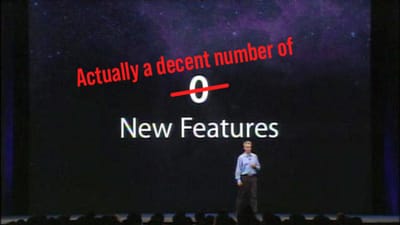Being the wallet is isn't cool. You know what's cool? Being the card people use in a ton of wallets.
Forgive the lengthy quotes in this post. These are from a podcast, and people are more verbose when speaking than when writing. I've chosen not to edit them down to make sure you get the full answer.
I was listening to The Vergecast this week and a caller sent in this question in regards to the idea of Apple opening up the NFC chip in iPhones to non-Apple Pay wallets:
But far more realistically, I feel like the world we live in is one where the second the court says Apple exclusively can't lock users in, then every other company is just going to say, "oh, cool,"" and they're going to remove their card from the Apple wallet, and they're going to make their own wallet.
And then they're going to make me use exclusively their wallet to use their thing. And that's hell because then all of a sudden I have my Amazon card is in my Apple wallet. And then my Delta tickets and my Sky Miles card are in my Delta exclusive wallet. And how does that not just like result in a worse experience for everybody on the back end?
Like how can we force Apple to open up? Is there a way to force Apple to open up that doesn't just allow all these other companies to be like, oh, Apple can't be the monopoly. So I would like to and then block everybody else out of their new thing.
And while this question got me thinking I had my next payments-based banger blog post ready to go, Nilay Patel replied very well.
With wallets, everybody wants your credit card to be everywhere; there's no incentive for anyone to make you use a different wallet app. The incentive is for your credit card to be everywhere. Right, because they want you to use your credit card.
And you can see this play out on the web already, where every storefront has like 15 payment service buttons. Like, do you want to use ShopPay? Do you want to use Google Pay, Amazon Pay, Apple Pay? Like, whatever, just pay us. Like, pay us the money.
You get PayPal and Venmo, which are the same company. They're like, we don't care, just do something. Any way to get your money, they'll do it.
So the incentive, at least for that one, is for payment services to make it easy for you to spend money.
The listener's question fundamentally misunderstands the incentives and profit centers of payment institutions. Having a popular wallet that customers love and lets them make you their one-stop-shop for all payment and boarding pass needs is a nice halo product, but retracting your card from being able to used anywhere besides your own wallet is ridiculous.
For some context, Apple collects 15 basis points (0.15%) on credit card transactions run through Apple Pay, while the card issuer (Chase, Bank of America, etc.) will likely collect at least 10x that amount.
What this means in practice is that the thing all card issuers want is transaction counts and volumes to be as high as possible. You don't do that by locking your card to your own wallet, you do it by making it an easy choice for consumers to pick you. "Oh, you have this type of phone and use this wallet already? We got you."
That's not to say there's no value in having a wallet that people like. For example, Apple was able to advertise their Apple Card to millions of people in their Wallet app, and they've been able to build a better experience in that app for people using their card. That's what I mean by wallets being a good halo product; you will make some money from the wallet itself, but the bigger value in my view is getting a relationship with customers of which a certain percentage will choose you next time they need to open an account because they already use you and you can deliver the best wallet experience if they get your card too. Again, this is exactly what Apple's done with their Wallet app.
My expectation is that if Apple ever opens up iOS in the United States so that other wallets have a chance (aka they can use the NFC chip and be set as default), most people will stick with Apple Wallet. Partially because it's genuinely very good, partially because it's run by the platform holder, and partially because they've had no choice for over a decade and there's a switching cost most people won't want to bother with unless they have a good reason. But other wallets will pop up and we'll get some competition in regards to UI and rewards and features, just like we get in things like browsers, task managers, and a billion other app categories today.


